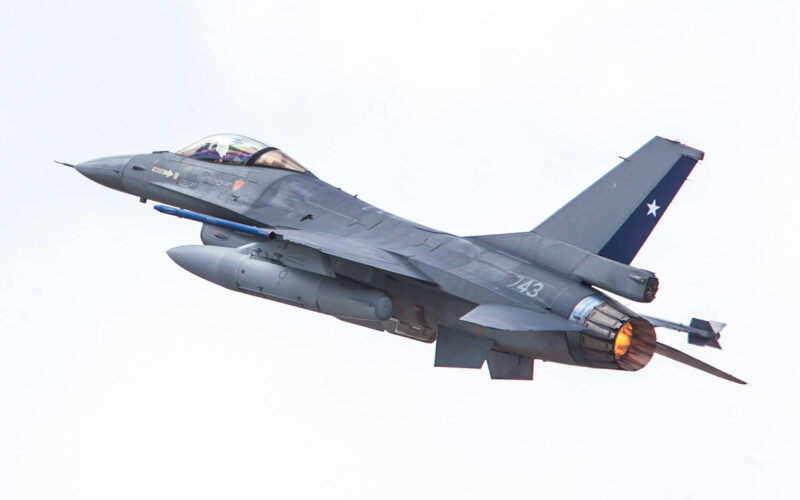Days after an upgrade plan for the Chilean Air Force F-16 fighter jets, valued at more than $600 million, was approved by the United States Department of State, the Chilean government revealed the project had been postponed “months ago”.
On July 23, 2020, the U.S. Defense Security Cooperation Agency (DSCA) notified the Congress of a possible sale to the Government of Chile of “equipment and related services for F-16 Modernization for an estimated cost of $634.70 million.” The sale includes 19 Joint Helmet-Mounted Cueing Systems, 49 Multifunctional Information Distribution System Joint Tactical Radios, a number of Identification Friend or Foe systems, and an overall upgrade of the avionics and software.
“The proposed sale will improve Chile’s capability to meet current and future threats by modernizing its F-16 fleet, which will allow Chile to maintain sovereignty and homeland defense, increase interoperability with the United States and other partners, and deter potential adversaries,” stated the DSCA in a press release.
The upgrade plan followed a request made by the Chilean Air Force (Fuerza Aérea de Chile, FACH) in 2017. In total, the FACH operates 44 F-16 fighter jets, that include 10 new F-16 Block 50/52 acquired from Lockheed Martin in 2006, and 36 second-hand F-16 A/B MLU sold by the Netherlands.
But much has happened since 2017, and the upgrade which was initially planned to take place before 2021 will likely be postponed. Two days after the sale was approved, the Chilean Minister of Finance Ignacio Briones declared that the upgrade plan had been suspended in April 2020, as the priority was to deal with the coronavirus COVID-19 pandemic.
The Chilean Ministry of Defense confirmed the decision, stating that while the plan “is technically validated and was awaiting the allocation of resources, in early 2020 the decision was made to postpone it due to the health emergency and the need to prioritize state resources in other more urgent areas.”
Additionally, prior to the pandemic, Chile experienced a wave of protests over the rising cost of living and income inequalities, described by some as the “worst civil unrest” in the country since the end of the Pinochet dictatorship. In this context, such military spendings would most likely be unwelcome and lead to more frustration within the population.

